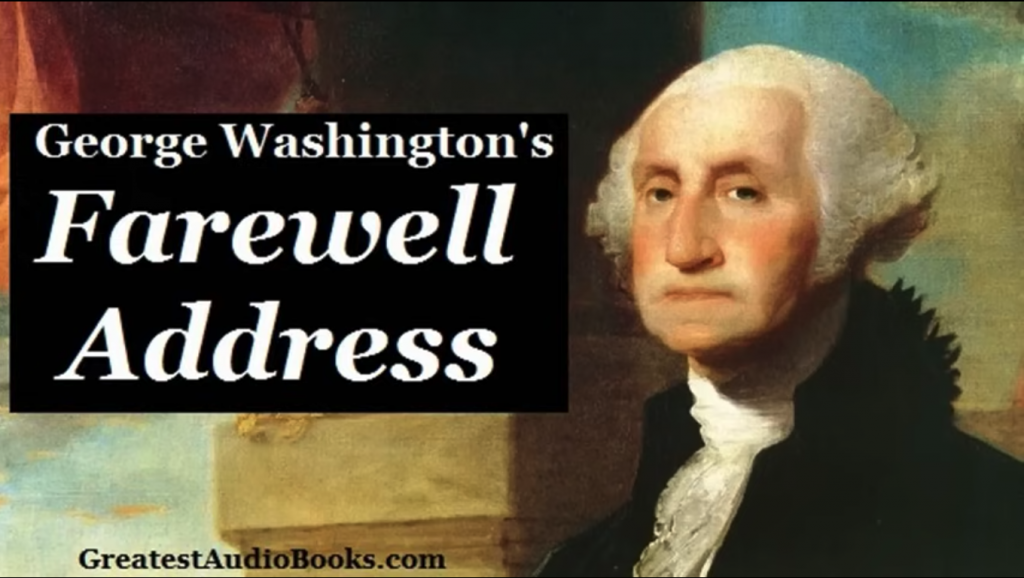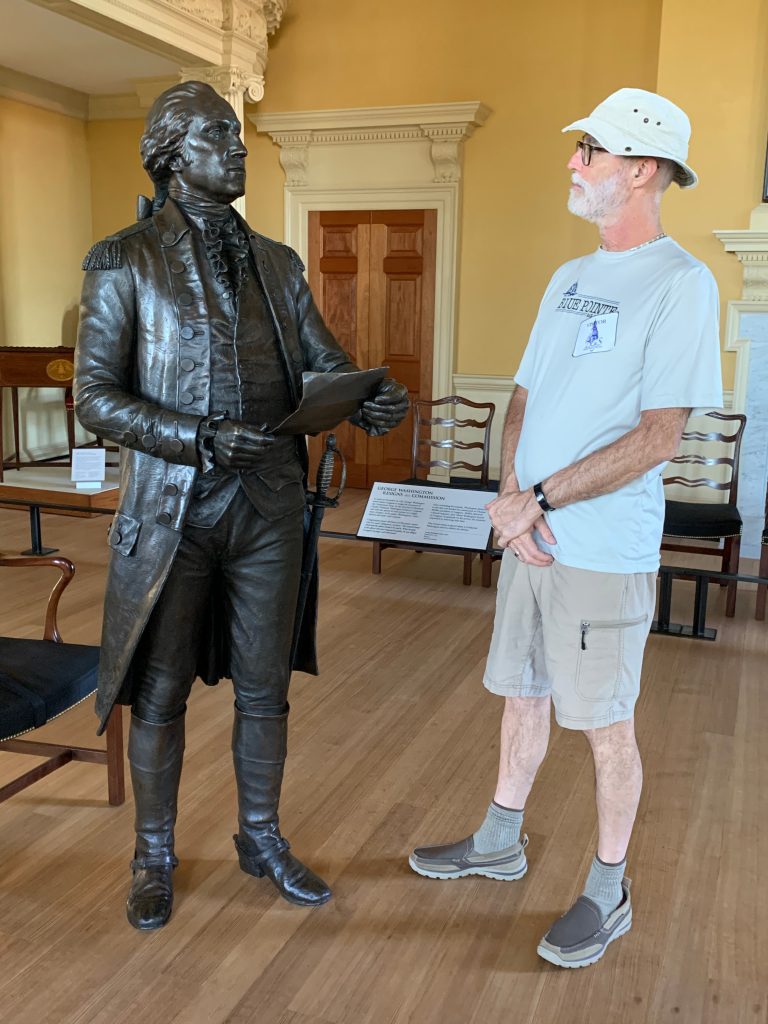Why I Don’t Celebrate “Presidents’ Day”
I celebrate “Washington’s Birthday,” not a day honoring all presidents–because most of them sucked. Horrible for liberty, individual rights, and principles of limited government.

February 21st, 2022, is called “Presidents’ Day” on my computer’s calendar. No, thanks; not for me.
I am old enough to remember when there was a “Washington’s Birthday” holiday in my state, on his actual birthday—February 22nd. We studied George Washington in school that day. Not all the presidents, just George.
There was a second holiday for another president’s birthday back then in my state, though I don’t recall who it was. I was a kid in 1971 when the federal government passed the “Uniform Monday Holiday Act,” which changed the holiday of Washington’s Birthday to the third Monday in February. Some states and a lot of people after this change began calling the holiday “Presidents’ Day,” in a move to honor anyone who managed to get into the White House. Or the name was changed in some states to honor several presidents, with one usually being Washington.
The federal holiday is still actually named “Washington’s Birthday,” regardless of what my computer and CNN claims. There is no “Presidents’ Day” federal holiday. The name was not changed when they moved it to the third Monday.
The day is also a state holiday, with 15 different names depending on the state. And some states do use “Presidents’ Day” as the holiday name—and for a reason that isn’t a good one.
Looking up Washington’s Birthday on Wikipedia redirects to a page called “Presidents’ Day.” Wikipedia claims the day is “to honor all persons who served in the office of president of the United States.”
Nope, not me.
No way I am celebrating “Presidents’ Day”—because most presidents are not worthy of my celebration. Most sucked, actually. They were horrible for liberty, individual rights, and the principles of limited government and self-responsibility. Terrible for the principles Washington lived by and worked so hard for.
Most presidents once in office ended up taking steps to grab more power and allowed the other branches to take more power. Most presidents spent their time in the White House working to destroy the fundamental limits on government the united States was founded upon. The federal government has steadily grown, steadily usurped power from the states, under presidents of all parties. The national debt is a handy measure of this growth, and the curve goes up regardless of who and what party gets control. The curve approximately measures the size of government, the power, the spending, the destruction of the value of the dollar, the wars, and the socialist handouts to favored individuals and corporations. And specifically the debt. It’s all up, up, up. And the president is complicit, part of it.

I choose to celebrate Washington’s Birthday today. I want to celebrate George Washington for his actions and his philosophy. He was great as the general in the War for American Independence, as president of the Continental Congress during the writing of the Constitution, and as president of the U.S. for two terms.
I want to celebrate what America is about—rather than the socialism, war-making, insult, injury, debt, and other evils of most American presidents.
To celebrate the holiday, I listened to a reading of Washington’s Farewell Address. This was issued as a public letter in 1796 to the people, near the end of his second term as president. The title of the publication is “President’s Declination to the People of the United States Delivered by George Washington, September 17, 1796.”
The reading linked here is 38 minutes and loaded with great advice. Highly recommended.
Washington opens with a declaration that he is determined to retire at the end of his second term as president, after long contemplation. He discussed how he “was reluctantly recalled from retirement” to become president for his first term, and that taking the role was a sacrifice for him.
I’ve often thought that anyone who really wanted to be president and was doing everything possible to get the job should not be eligible. Big red flag IMO. Sometimes it seems the joke that a random pick from the phone book would be better than whoever the American people elect is worth serious consideration. A random citizen might not have have been worse in many cases in U.S. history, perhaps better statistically.
Washington was the opposite of all presidents today (and over much of the last 200 years) in many regards. He accepted the role reluctantly, after resigning his position as general at the end of the American War for Independence in another great address to Congress assembled in Annapolis.

George Washington did no campaigning; he simply agreed to do the job as first president if the Electoral College selected him. His “campaign” for a second term consisted of a meeting where they talked the reluctant Washington into a second term. Washington agreed to do it and went home to work his farm, waiting to see who the Electoral College voted for. No campaign funds needed, no newspaper articles of slogans, no appearances.
In his farewell address to Congress, Washington spoke of the “feeble ties” that link the various parts of the country together. He was a citizen of Virginia; as everyone then thought of their citizenship. The union of the united States was quite limited by design, with the states holding the vast majority of government authority. At the end of Washington’s time in office, the designed limits were still in effect (well, arguably nearly all; set that aside for today).
Washington referred to the union as an “alliance.” The general government he speaks of is an alliance between sovereign states, for defense from foreign attack and establishment of free trade between independent states in a union. The states came first. They created the federal government and delegated a few limited jobs to it. The states are the higher power. Remember at the time they referred to the State of Great Britain, the State of France, and the State of Virginia—all hold the same level of sovereign power.
“Independence and liberty” are the ideals Washington spoke of—not government helping every individual, getting involved in every aspect of life it can get away with. Not confiscating property by income taxes and doling out huge amounts of money to individuals and corporations to “help” (and buy votes).
Washington said it is necessary for the people to do “regular resistance” to the authority of the government. He was referring to the people via their states, how they must maintain the limits on the general government. The federal government won’t limit itself; it will do the opposite, and Washington warned us about it.
Washington also warned of factions—political parties. He was not a member of any party. He said a political party will “put the will of the party” before the people. He said if the government becomes controlled by political parties, the problem will be the minority who get control. Washington said, “They are likely, in the course of time and things, to become potent engines, by which cunning, ambitious, and unprincipled men will be enabled to subvert the power of the people, and to usurp for themselves the reigns of government, destroying afterwards the very engines which have lifted them to unjust dominion.”
On government debt, he said we need to “use it as sparingly as possible. . . . Avoiding likewise the accumulation of debt, not only by shunning occasions of expense, but by vigorous exertion in times of peace to discharge the debts . . . not ungenerously throwing upon prosperity the burden which we ourselves ought to bear.”
On relations with other nations, Washington advised we “cultivate peace and harmony with all.” He said that “nothing is more essential than that permanent and vetted antipathies against particular nations, and passionate attachments with others, should be excluded. . . . So likewise, a passionate attachment of one nation for another produces a variety of evils, sympathy for the favorite nation facilitating the illusionment of a common interest where no real common interest exists.” He cautions that this will lead one nation into “the quarrels and wars of the latter, without adequate inducement or justification.” Washington specifically warned against getting involved in quarrels between European nations.
“Honesty is always the best policy.”
We should heed George Washington’s great advice. And should have followed it in the past.
Too bad the government over the two centuries since his address has done exactly what Washington said not to do. And too bad the states and the people have not stopped them from the usurpation, insult, and injury.
It’s time to follow Washington’s advice—all of it. We need to stop the “cunning, ambitious, and unprincipled” politicians signing our children up for ludicrous amounts of debt. Stop the foreign entanglements, party factions, and usurpation of power.
George was right.
It’s up to us. The city named after George will never do it themselves, as demonstrated by all history. The people and their states need to stop it.
Note: I transcribed the quotes above from the audio of the Greatest Audio Books reading. Any spelling or wording corrections are welcome; please provide in comments if you find any. Apologies to George if I mis-transcribed.
